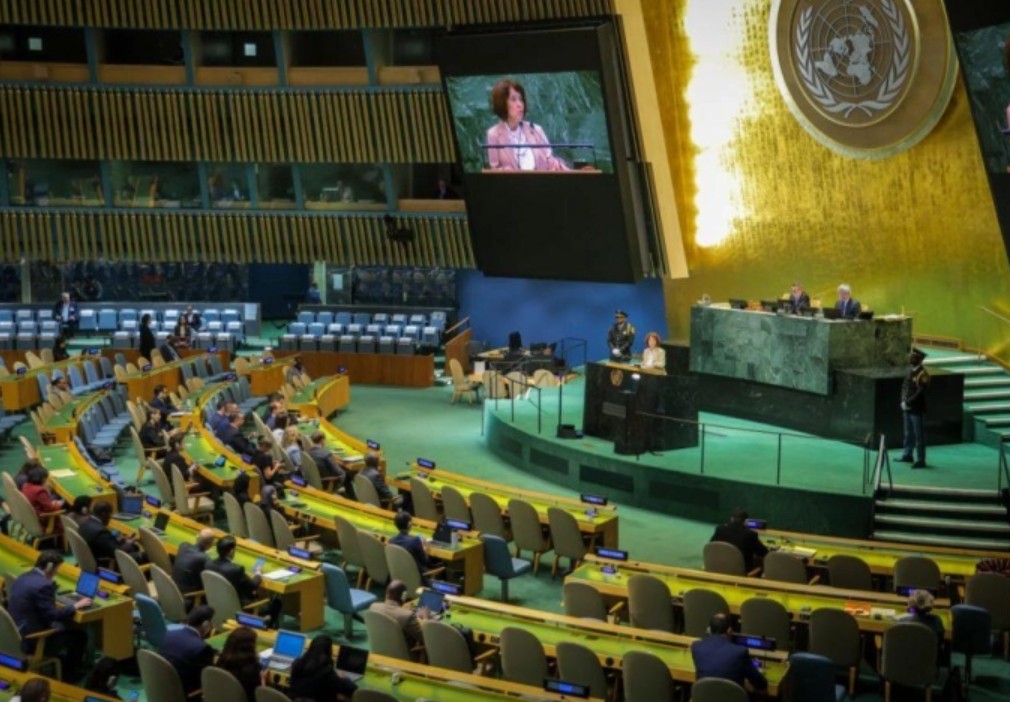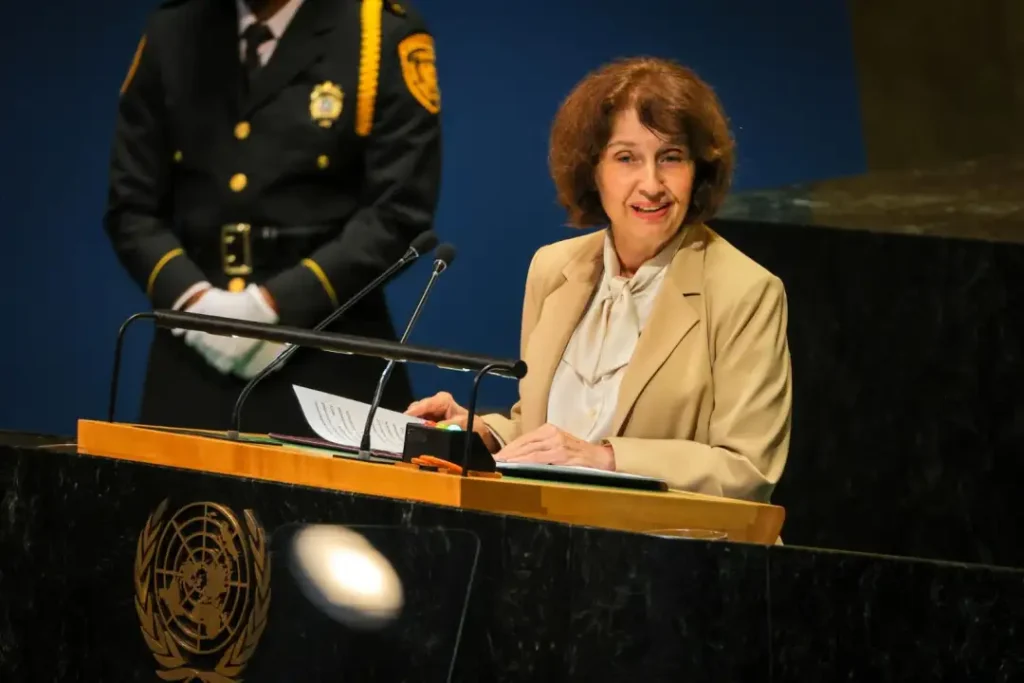
President Gordana Siljanovska – Davkova addressed the United Nations General Assembly today, and in her remarks, she focused on global issues like Gaza and Ukraine, but also the long delayed EU accession of Macedonia.
The geopolitical fault line runs through the Western Balkans region. The process of Macedonia’s accession to the European Union has been continuously obstructed for 20 years, not on the basis of the objective Copenhagen criteria, but because of subjective, nationalist reasons. The latest EU condition for the start of our negotiations is a new, re-imposed change to the Constitution, said the President.
She pointed out that conditioning the start of negotiations with new constitutional amendments reopens the issues of history, culture and language, which “we were convinced were closed by the Prespa Agreement with Greece”.

We are constantly warned that agreements must be respected: Pacta sunt servanda. We note that the agreement with Bulgaria does not contain provisions for constitutional amendments. With the foundational acts, the EU defines itself as a “unity in diversity” and commits itself to respecting “cultural and linguistic diversity”, “national and cultural identity”, “dignity and integrity”. How is it possible then that we are required to discuss and negotiate with our neighbor about our history, culture and language?, asked President Siljanovska.
In her address, referring to the Middle East and Gaza, President Siljanovska expressed her conviction that sustainable peace in the Middle East can only be achieved through dialogue and diplomacy, in accordance with international law. – “In that spirit, we reaffirm our support for international efforts aimed at de-escalation, inclusive dialogue and direct negotiations. The alternative is to try to revitalize multilateralism and make its institutions more resilient to systemic shocks”, said Siljanovska-Davkova.


 English
English